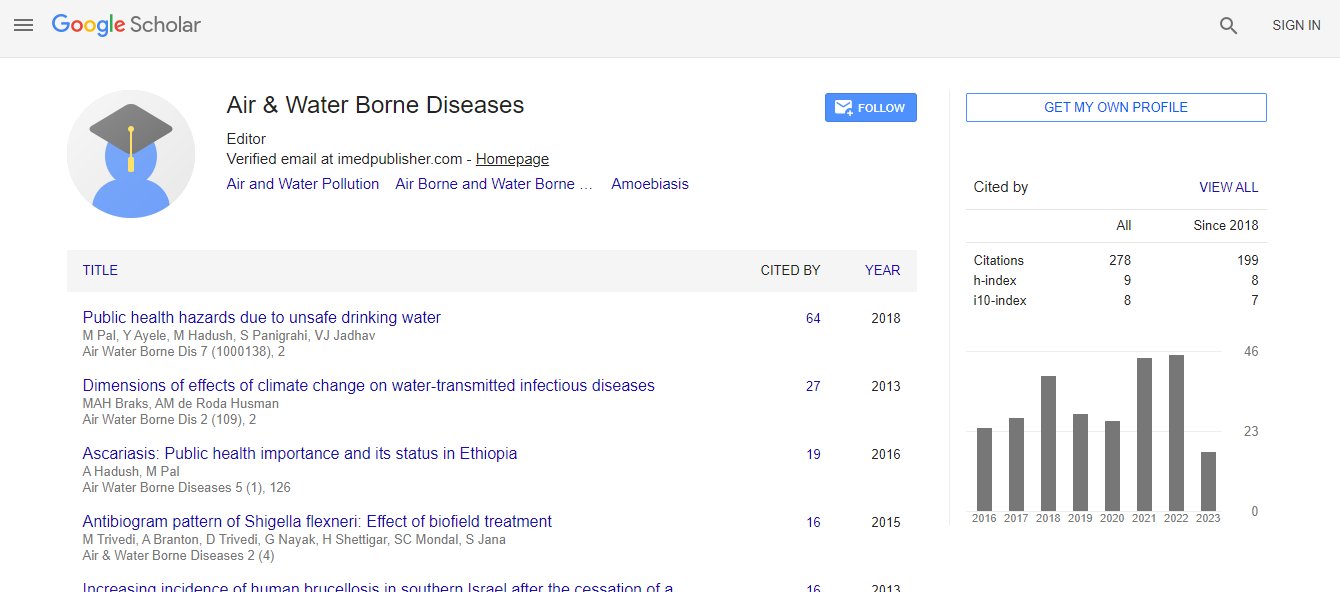From Air to Gut: Transmission Dynamics and Control of Environmental Pathogens
*Corresponding Author: Dr. Priya Mehta, Department of Clinical Microbiology, Institute of Public Health & Infectious Diseases, India, Email: priya.me@gmail.comReceived Date: Jan 01, 2025 / Accepted Date: Jan 30, 2025 / Published Date: Jan 30, 2025
Citation: Priya M (2025) From Air to Gut: Transmission Dynamics and Control ofEnvironmental Pathogens. Air Water Borne Dis 14: 276.
Copyright: © 2025 Priya M. This is an open-access article distributed under theterms of the Creative Commons Attribution License, which permits unrestricteduse, distribution, and reproduction in any medium, provided the original author andsource are credited.
Abstract
Environmental pathogens pose a persistent and widespread threat to global health, with transmission routes ranging from inhalation to ingestion. These microbes often thriving in air, water, soil, and surfaces can infiltrate the human body via the respiratory and gastrointestinal systems, causing a spectrum of diseases. The increasing complexity of urban infrastructure, climate change, poor sanitation, and global mobility has further enhanced the spread and resilience of these pathogens. This article explores the intricate dynamics of pathogen transmission from air to gut, highlighting the interconnectedness of airborne and waterborne infections. Key factors such as environmental reservoirs, host susceptibility, vector involvement, and microbial resistance are examined in detail. Emphasis is placed on surveillance strategies, preventive public health measures, and control mechanisms including sanitation, vaccination, and innovative disinfection technologies. Understanding these pathways is essential not only for managing outbreaks but also for developing integrated control strategies to mitigate future health crises.

 Spanish
Spanish  Chinese
Chinese  Russian
Russian  German
German  French
French  Japanese
Japanese  Portuguese
Portuguese  Hindi
Hindi 